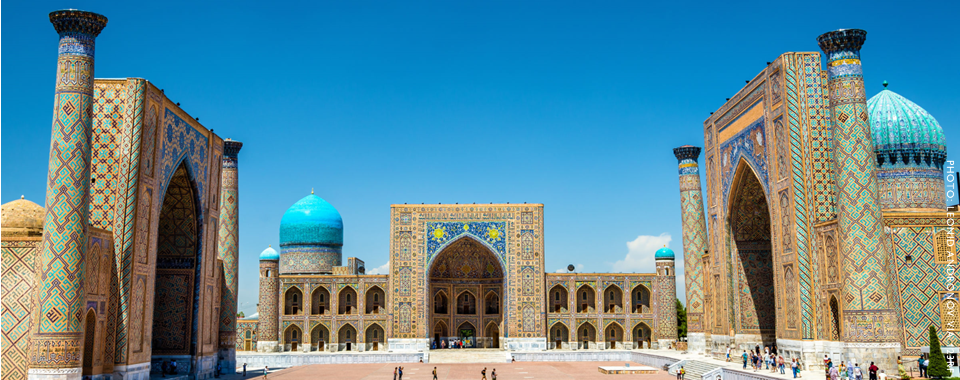KEENAN IULIANO
When countries worsen significantly on the Fragile States Index (FSI), the deterioration can sometimes be rapid and dramatic and is nearly always headline news. However, significant improvement tends to be more steady, gradual, long-term, and can often go unnoticed. Uzbekistan is one such country that has made significant but quiet improvement; its overall FSI score having improved every year since 2010, moving from the 36th most fragile country at the start of the decade to 74th at its end. This improvement has led Central Asia’s most populous nation to be the fourth most improved country of the 2010s, bettered only by Cuba, Georgia, and Moldova. And Uzbekistan’s improvement has been consistent – the country has improved by at least one full point for each of the 12 FSI indicators over the past decade.
Though Uzbekistan has been steadily improving for the past ten years, the bulk of Uzbekistan’s improvement happened more in the latter half of the decade. Since 2015, Uzbekistan has seen the largest improvement of any country on the FSI and is the only state to rank within the top sixteen most improved for each year, improving by an average of approximately 2.4 points per year. Its 2020 score change of -2.6 is the second largest improvement for the country over the history of the FSI, behind only the -3.4 it registered in the 2019 Index.

But why the marked improvement? A significant catalyst for these improvements was the 2016 change in leadership, when Prime Minister Shavkat Mirziyoyev replaced President Islam Karimov after the latter’s death. Karimov had led Uzbekistan since its independence from the Soviet Union in 1991, and supervised an authoritarian regime that was corrupt, abusive, and sheltered from the international community. Karimov regularly won lopsided elections while presiding over human rights abuses against the Uzbek people. Uzbekistan was notorious for its deplorable labor conditions – over 1 million people, including children, were forcibly mobilized yearly to work for the state in cotton fields. Karimov also cracked down on religious expression and freedom of speech, imprisoning and torturing dissidents and killing protestors. Karimov’s regime was widely condemned, with the United Nations describing the country’s human rights abuses as “institutionalized, systematic, and rampant torture.”[1]
In contrast, Mirziyoyev has used his presidency to implement significant reforms, marking a sharp change from Karimov’s twenty-five-year rule. Since entering office, Mirziyoyev has slowly opened the nation to international visitors and lifted restrictions on currency exchange. His regional policy has improved relations with Uzbekistan’s Central Asian neighbors, some of which were considered ‘sworn enemies’ under Karimov. International trade with both Asian and European partners has grown, increasing by 26.2% from 2018 to 2019.
Mirziyoyev has also verbally committed to democratizing Uzbekistan and working towards human rights improvements, with some demonstrable progress. A -1.8-point change in the Human Rights and Rule of Law indicator since 2016 has been Uzbekistan’s most substantial FSI indicator-level improvement over that period. Mirziyoyev’s reforms have led to a reduction of false imprisonments, the release of political prisoners, and in August 2019 the notorious Jaslyk prison was closed. Both prison and labor conditions have improved after the president targeted and reduced state usage of torture and forced labor. Religious expression has become more commonplace after decades of repression under Karimov, who feared Islam in the public setting would popularize Islamism. Similarly, political debate, social critiques, and independent media are gradually returning to public forums. Recently, the government lifted a ban on several critical websites and officially acknowledged the importance of social media and bloggers as key arbiters of public opinion. Mirziyoyev has additionally loosened the grip of the state’s notorious security service, working to alleviate fear and build trust between Uzbek citizens and law enforcement.
However, Uzbekistan’s improvements should be viewed as relative. The country still faces a litany of ongoing gaps and challenges. Critics outside Uzbekistan argue Mirziyoyev has only committed to reforms in the name of attracting foreign investment and boosting the Uzbek economy, suggesting that there may be a lack of genuine commitment behind the improvements in human rights and that they may be vulnerable to shifts in the financial climate. Uzbekistan’s score of 7.6 in the Human Rights and Rule of Law indicator is tied for 39th with India, Afghanistan, and Nicaragua, despite its recent improvement. Torture has not been comprehensively eliminated, and the reformed security apparatus continues to abuse its powers via harassment and unjustified charges of treason. New workplace regulations have improved conditions but have not fully ended forced and child labor.
Further, the core of Uzbekistan’s political system is largely unchanged. In December 2016, Mirziyoyev won his first electoral bid with 88.6% of the vote. The country’s State Legitimacy indicator score of 9.4 is among the world’s worst; in parliamentary elections in 2019 – the first since Mirziyoyev became president – no real opposition parties were allowed to run. In addition, the opposition Erik party and its leader Muhammad Solih remain banned in the country.
While Uzbekistan has made significant progress, especially in the last five years, it still faces major challenges. Mirziyoyev’s five-year term expires in 2021, which will be an opportunity to evaluate his regime’s commitment to its reform agenda. Nevertheless, Uzbekistan’s progress demonstrates the slow and steady trajectory of quiet improvement that occurs in many countries and though not immediately perfect at least represent a slightly better reality tomorrow than yesterday. Hopefully, the gradual and continued opening of civil space can help support continued improvements in one of the bright spots of the FSI’s past decade.
Endnotes
1. Leonova, Vera. The Calvert Journal. February 7, 2018. URL located at: https://www.calvertjournal.com/articles/show/9617/karimov-comes-to-moscow-uzbek-dictator-british-sculptor .
